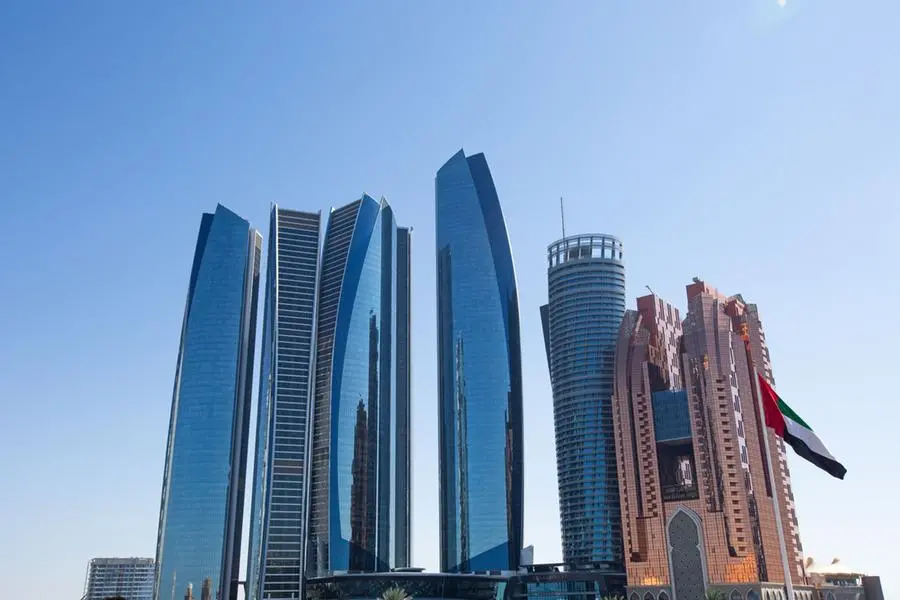PHOTO
ABU DHABI - The UAE is attracting an increasing flow of foreign direct investment (FDI), driven by several factors, among which a network of Comprehensive Economic Partnership Agreements (CEPAs) with global partners is particularly significant, according to Massimo Falcioni, Chief Competitiveness Officer (CCO) at Abu Dhabi Investment Office (ADIO).
The UAE’s strategic location, focus on digitalisation and future-oriented industries also complement this favourable trend, he said in an interview with the Emirates News Agency (WAM) during the ongoing AIM Congress at the Abu Dhabi National Exhibition Centre (ADNEC).
The COO stressed that CEPAs play a crucial role in making the UAE an attractive destination for businesses. "CEPAs are highways for goods and services to countries [that have signed agreements with the UAE].”
Passport to wider markets
These agreements act as a "passport" for foreign businesses, granting them access to a wider market for their goods and services, reducing trade barriers, simplifying customs procedures, and streamlining supply chains, he explained.
“This makes the UAE an attractive launchpad for companies seeking to expand globally,” Falcioni said.
The UAE initiated CEPA in 2021, aiming to establish more open, sustainable, and mutually beneficial trading relations. CEPAs have been signed with eight countries such as India, Israel, Indonesia, Turkey, Cambodia, Georgia, Costa Rica, and Columbia. The agreements with the first five countries in this list are fully operational and negotiations with many other countries across the world are progressing.
FDI inflows to UAE
The ADIO executive referenced the World Investment Report 2023 of the United Nations Council on Trade and Development (UNCTAD), which valued the FDI inflows to the UAE in 2022 at US$22.737 billion (AED 83.5 billion), up by 10 per cent or US$2.07 billion (AED 7.6 billion), to rank 16th globally in FDI inflows.
The UAE was ranked first in the West Asia region since it received 47.1 percent of the total FDI inflows to the region, amounting to US$48.3 billion. The UAE also was ranked 1st in the MENA region as it accounted for 32.4 percent of the total FDI inflows to the region, amounting to US$70.2 billion.
Falcioni highlighted the UAE's geographical advantage, situated at the crossroads of three continents – Asia, Africa, and Europe, coupled with developed aviation and port infrastructure. Khalifa Port in Abu Dhabi connects the city to over 64 international destinations, he pointed out.
FDI to greenfield projects
A particular focus for UAE is attracting FDI into greenfield projects – entirely new ventures, the executive said. The Abu Dhabi Investment Office offers incentives for such projects, including access to land at competitive rates, facilitating connections to talent pools, and ensuring easy access to financing, he added.
"Greenfield projects contribute the most to the economic development, because they make an impact in terms of employment and building the infrastructure," he pointed out.
Digital economy
The UAE’s digital economy is another key driver of growth, the ADIO official noted. The Abu Dhabi Global Market (ADGM), a financial hub, is actively attracting fintech companies and creating platforms for easily accessing finance for businesses based in Abu Dhabi.
"The digital economy has the capability to accelerate the development of the economy,” Falcioni said, citing examples of digitalisation's impact on sectors such as healthcare, real estate, and project management.
The government is actively creating an environment that fosters innovation across all sectors, from e-commerce to manufacturing, he noted.
E-sports is another rapidly growing industry where the UAE is seeking foreign investments and international expertise, the executive pointed out.
"We're importing knowledge from established leaders in the sector and fostering a fertile environment for growth."
Advanced industries
Looking ahead, the UAE is prioritising investments in Industry 4.0 and 5.0, focusing on automation, robotics, and enhanced productivity, he said.
The Ministry of Industry and Advanced Technology (MoIAT), in collaboration with Abu Dhabi’s Department of Economic Development, is actively working with businesses to facilitate this shift, Falcioni explained.
While not completely neglecting traditional industries, the emphasis is on transitioning the existing industries towards Industry 4.0 and 5.0, he noted. This involves increased automation and digitalisation to enhance productivity and compete effectively on the global stage.
With all these factors, the UAE is well-positioned to become a major hub for global investment, the executive emphasised.





















